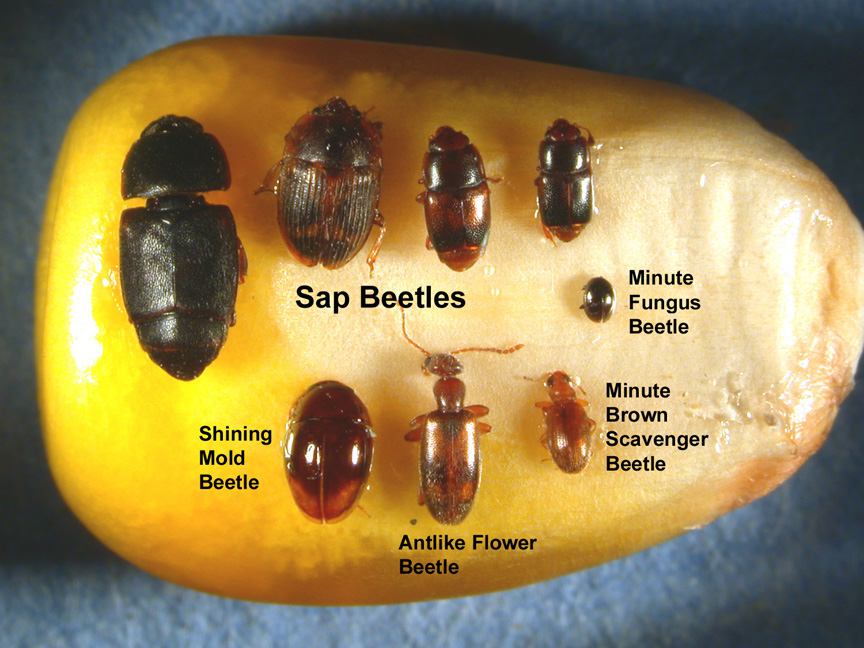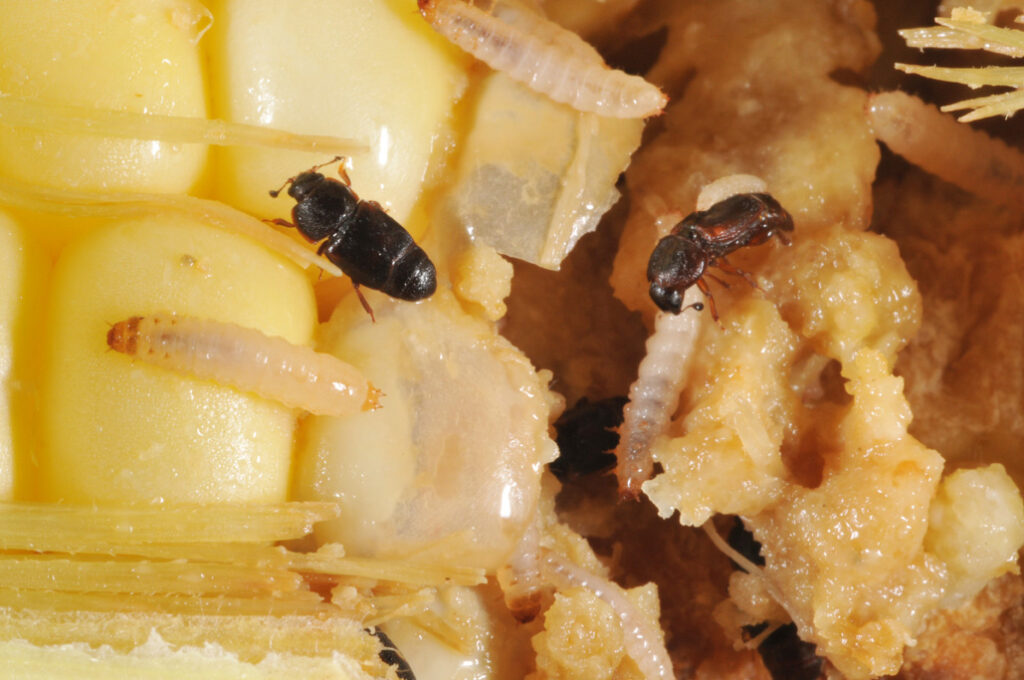As folks get out to inspect corn ears, especially in northern counties where western bean cutworm is a greater concern, they will find “little black bugs,” especially where kernels are damaged. Their presence is in response to previous damage to kernels, which includes insect and/or bird feeding, hail, etc. In addition, hybrids with short ear husks seem to be more prone to exposing kernels, making easy access for rootworm and Japanese beetles to compromise ear tip kernels while feeding on silks. These small, opportunistic insects are feeding on decaying kernels and subsequent molds, NOT directly damaging the crop. They are simply fulfilling their niche in the cycle of life, “clean up in Aisle 3.”





